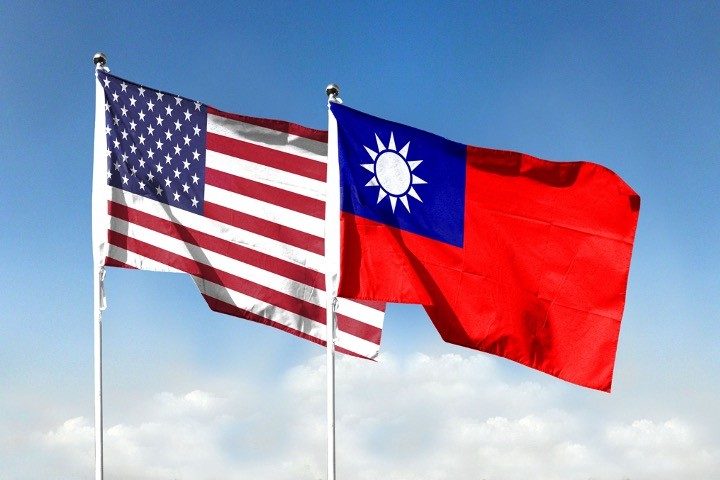
SINGAPORE — In December, U.S. President Joe Biden signed into law the National Defense Authorization Act (NDAA) for fiscal year 2023. The NDAA would authorize $770 billion in defense spending, the White House reported on Dec. 27 — $45 billion more than Biden had requested earlier in 2022.
Also incorporated in this huge defense spending package is a legislative initiative to boost relations between the United States and Taiwan, an ally of Washington. In particular, this new act would authorize up to $10 billion in “Foreign Military Financing” grants through 2027 to Taiwan to overhaul its security abilities and enhance its capacity to defend itself in the event of an invasion by mainland China.
The act will bolster training and collaboration; make up to $2 billion in loans available to Taiwan; empower the president to supply Taiwan up to $1 billion in munitions and weapons; and ensure a regional contingency stockpile permitting the Pentagon to place weapons in Taiwan for use in the event of a military conflict with China, said Mark Cancian, a senior advisor at the Center for Strategic and International Studies, a think tank.
Moreover, the NDAA is poised to set up a unique defense modernization program for Taiwan to prevent aggression by China, declared Senate Foreign Relations Committee Chairman Bob Menendez, a Democrat from New Jersey.
On the pretext that the Russia-Ukraine crisis might propel China to conduct a military invasion of Taiwan, Biden has repeatedly said that the U.S. has a duty to protect the democratically governed island should China stage an incursion.
Both the Senate and the House of Representatives had voted overwhelmingly for the defense bill, with strong backing from both Democrats and Republicans. “The Act provides vital benefits and enhances access to justice for military personnel and their families, and includes critical authorities to support our country’s national defense,” Biden declared in a statement after signing the bill into law.
The NDAA set aside $7.1 billion for the Pacific Deterrence Initiative (PDI) and a statement of congressional support for Taiwan’s defense, as well as a blockade on the Department of Defense obtaining products produced with forced labor from China’s Xinjiang region. The PDI is concentrated on enhancing Indo-Pacific deterrence against “the multi-domain threat posed by China.”
China, which regards democratically governed Taiwan as a renegade province and its own territory, voiced “strong dissatisfaction and resolute opposition” regarding the NDAA, the Chinese Foreign Ministry announced in a statement, specifically criticizing the bill’s offer of security assistance and fast-tracked weapons procurement for Taiwan as containing provisions that “cause serious damage to peace and stability in the Taiwan Strait. The case ignores the facts to exaggerate a ‘China threat’, wantonly interferes in China’s internal affairs and attacks and smears the Chinese Communist Party, which are serious political provocations to China.”
On the other hand, Taiwan’s Defense Ministry articulated its gratitude for the legislation, saying it reflected the significance Washington attached to Taiwan-U.S. ties and enhancing the island’s security. Taipei will participate in talks about the details of the act with Washington and “gradually push forward the budget formulation and actual disbursement of the various Taiwan-friendly provisions,” the defense ministry declared.
Taiwan’s military is overshadowed by that of its huge neighbor China. Notably, its air force has come under pressure for having to scramble frequently to chase off Chinese incursions near the island in the past three years or so.
In addition to $2 billion in yearly military grants to Taiwan, the 2023 NDAA incorporates the Taiwan Fellowship Act, which offers support for U.S. federal government employees to live in Taiwan for a two-year fellowship.
The first year is to be allocated to the study of Mandarin and associated topics, followed by a year working in a government agency, legislative office, or approved organization linked to their field of expertise. At least 10 fellows from the three branches of the U.S. government — executive, legislative, and judicial — are to be chosen yearly, and returnees will be mandated to continue serving in the U.S. government for at least four years after finishing the program, with the aim of boosting the understanding of Taiwan’s central government and regional matters. The American Institute in Taiwan would have to start negotiations with Taiwanese agencies within 30 days of the bill’s enactment.
In a statement last week, Senator Ed Markey (D-Mass.), a sponsor of the NDAA, lauded its contribution to “creating a stronger, more resilient U.S.-Taiwan partnership.”
Notwithstanding the lack of formal diplomatic ties with Taiwan, America is the island’s most significant international supporter and arms supplier. American arms sales to Taiwan are a regular thorn in the flesh in terms of Sino-U.S. relations.
As the U.S. stance on Taiwan is one of strategic ambiguity, Washington does not articulate a clear-cut opinion on whether or not Taiwan belongs to China. Officially, the United States has been asserting for years that the Sino-Taiwan dispute must be settled in a peaceful manner by both contesting parties. Yet to ensure that Taiwan is not taken over by the communist regime in Beijing, the U.S. is committed to supplying Taiwan with weapons of a defensive nature, and during both the Trump and Biden administrations the U.S. position has become less ambiguous. For instance, the Taiwan Policy Act of 2022 strengthened U.S.-Taiwan relations and increased the amount of military support the U.S. would offer.
Provoking China, Biden has publicly stated repeatedly over the past two years that the U.S. would fight for Taiwan. While the White House has downplayed the president’s remarks, Beijing and some China analysts are starting to think that Biden’s statements imply that America would defend Taiwan if necessary. The U.S. has been working with its other Asian allies to prepare for a possible Taiwan emergency, and in 2021, Japanese and American armed forces prepared a draft plan for a joint operation should Taiwan require protection, Japan’s Kyodo news agency said.



